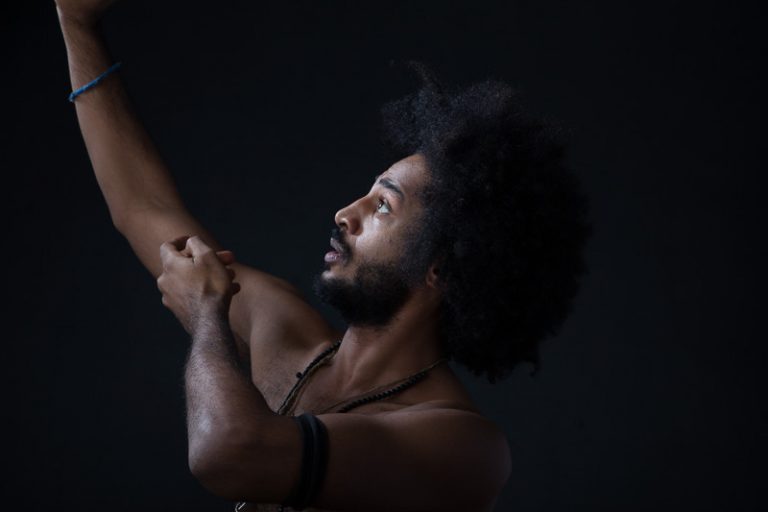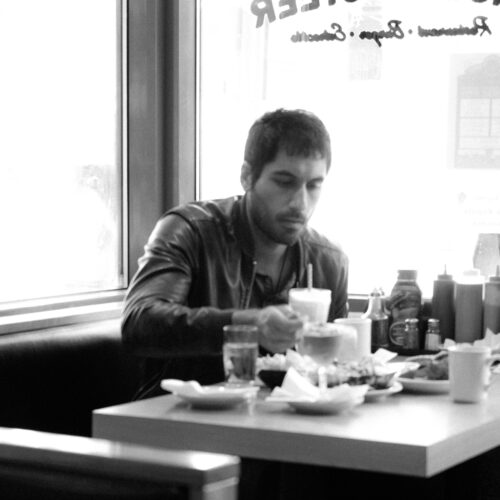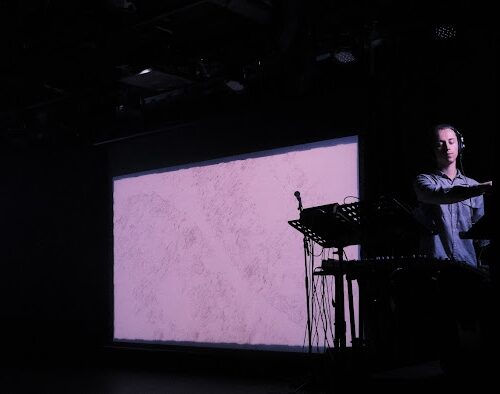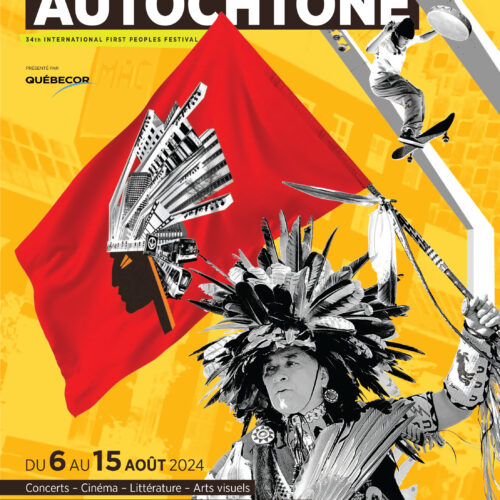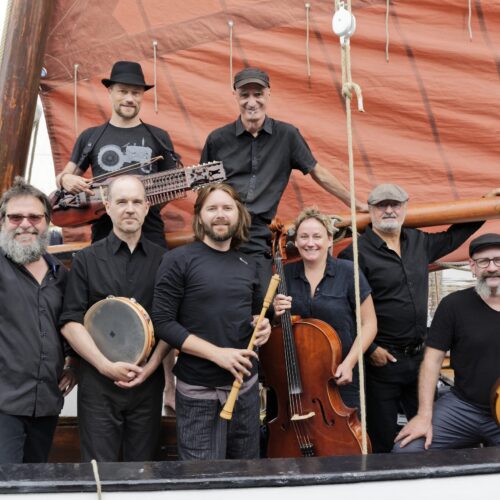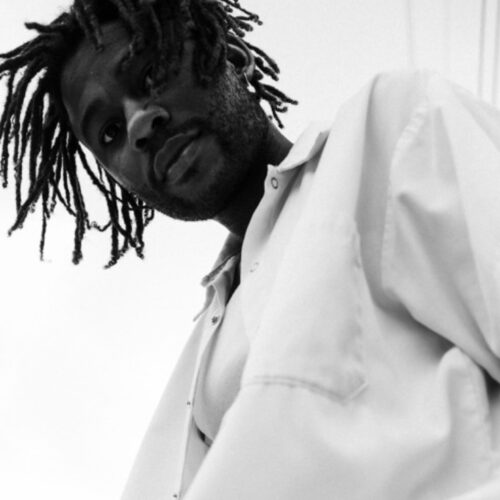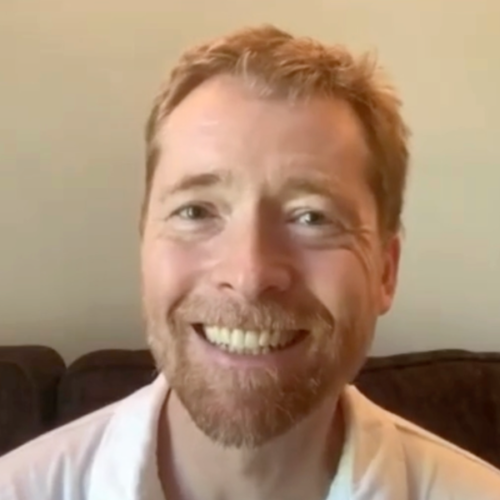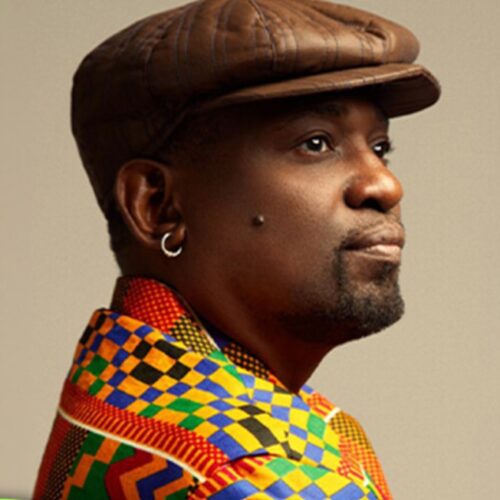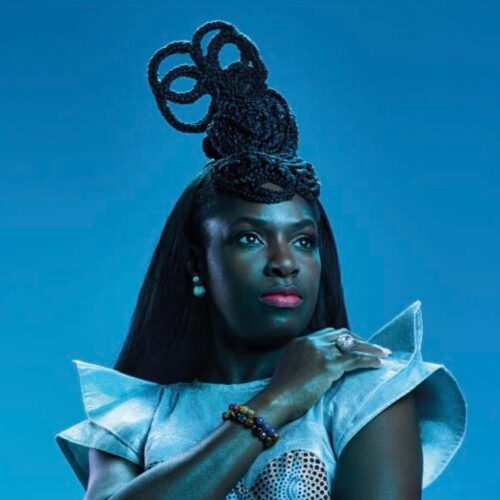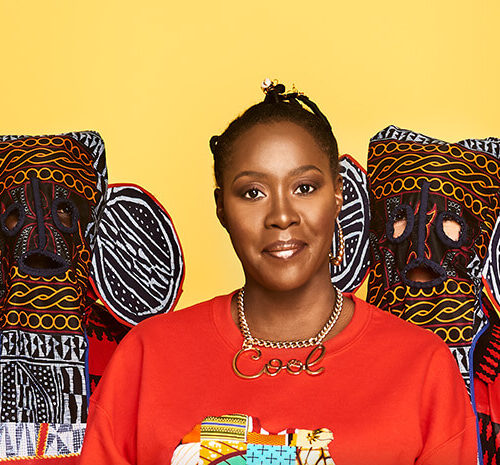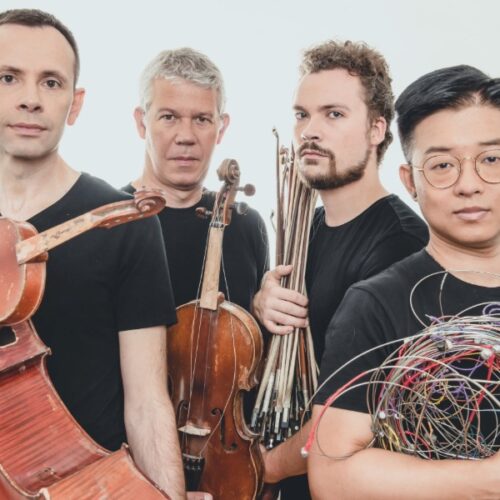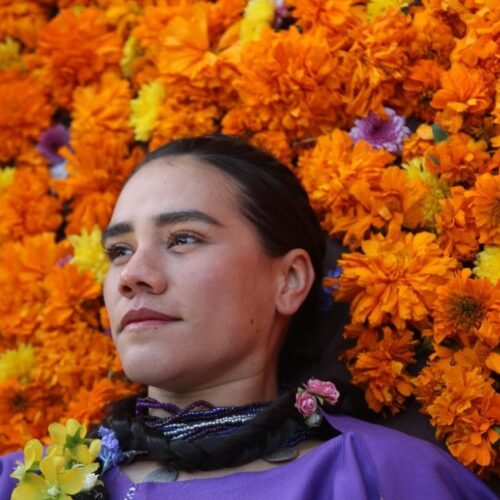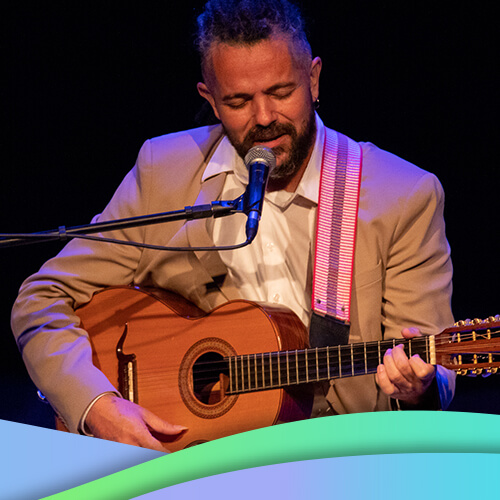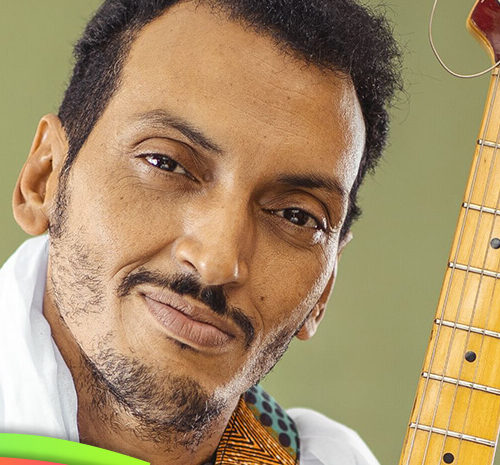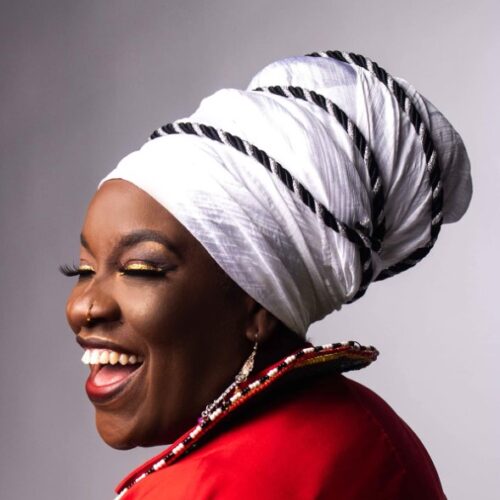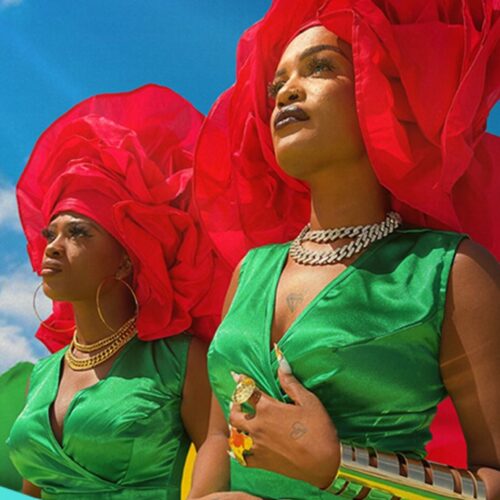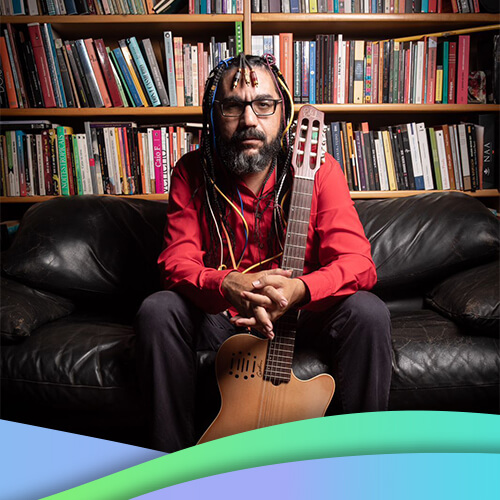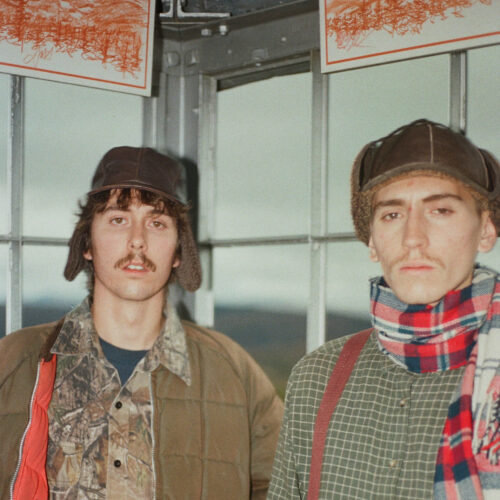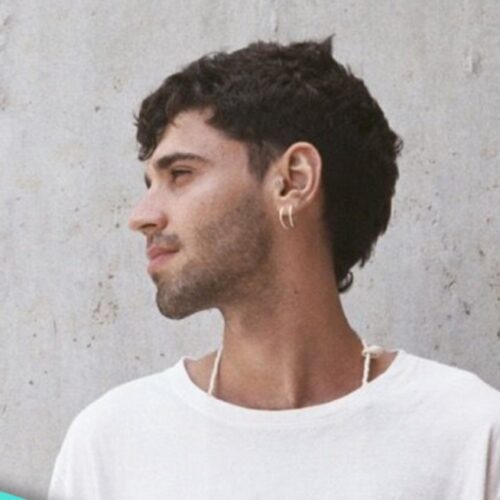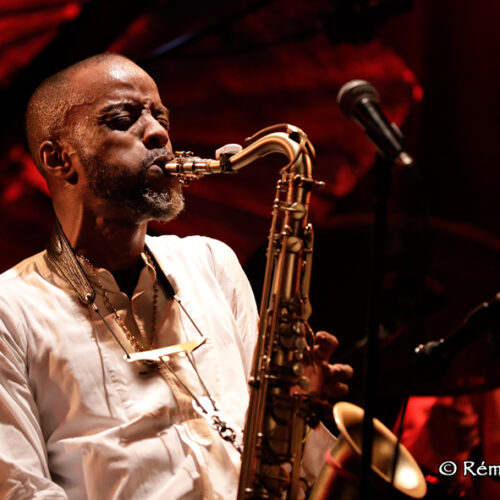Additional Information
To use (and recycle) a cliché, Ahmed Moneka had to reinvent himself long before the pandemic. A well-known Iraqi actor and broadcaster, he had to migrate to Canada in 2015 to ensure his safety after receiving serious threats from intolerant militias for being involved in a Iraqi film about homosexuality in the Arabic world. In Toronto, he became a singer and de facto witness of an Afro-Raqi culture that is little known in the West. Nearly two million Iraqi citizens have African roots, the descendants of a trans-Saharan slave trade that took place in the ninth century, and whose bloody revolt left hundreds of thousands dead in those distant days. A millennium later, this African culture still exists in Iraq, and Moneka is a proud representative of it. Moreover, this Iraqi artist turned Canadian (and citizen of the world) is willing to merge his culture with those of his colleagues of Moneka Arabic Jazz, performing this Saturday, November 6 at the Festival du monde arabe. Hence this interview with PAN M 360.
PAN M 360: “A show devised as a self-portrait, like a mirror on his own life, is the artistic path that Ahmed Moneka decided to take with Moneka Arabic Jazz.” This is how your concert is described by the FMA. Can you comment on this self-portrait?
Ahmed Moneka: It’s the soundtrack of my life, the Iraqi maqam I grew up with in Baghdad and the warmth of the quartertones is in my veins, and also the African groove in my soul that came from my ancestors, the Moneka family, and the freedom of expression of jazz. That inspired me in my city, Toronto, the meeting place.
PAN M 360 : Under what circumstances did you leave Irak? What do you think about the situation in Irak today for artists? Where did you live after your departure? When did you settle in Canada?
Ahmed Moneka: I came here to Canada, on September 10, 2015. I left Iraq for 10 days. I was invited to the Toronto International Film Festival to screen the movie that I co-wrote and that I starred in. The movie was about homosexual rights in Iraq, and there was a wave of events regarding the issue in 2011 in Baghdad. So when we screened the movie in 2015, I got threats from the militia there. I was forced to stay here in order to save my life. And you know, now, I’m happy. I think I am. The change was for the better.
Baghdad is still beautiful. It’s an amazing city and there are lots of great artists creating and a really rich art scene there today, in a lot of different sectors like in TV, music, theatre, films and also visual artists. There is a crazy revolution happening there and it’s all about love, about having a good time. So, you know, where there is love there is happiness. There are people really working hard to fill the community with joy and to keep the city beautiful.
PAN M 360: What was your voice, music and artistic training in Iraq?
Ahmed Moneka: The first interaction with music for me was with my family. Singing and playing drums. I was five years old. When I was introduced to Afro-Sufi ceremonies in my family house. Also, I learned maqam music at school in the Institute of Fine Arts in Baghdad. And that was also part of my training as an actor.
PAN M 360: The instruments are diverse and not all Arabic. Can you describe it?
Ahmed Moneka: We have oud, which is Arabic, but also the guitar, the keyboard, the saxophone, kora, bass guitar, drums and violin are not. And so yeah, we are a very diverse group.
PAN M 360: Your music videos are groove-based, sort of a funk-jazz-reggae approach within which you inject Arabic melodies—can you explain more about it?
Ahmed Moneka: I live in Toronto, I’m Iraqi, Arabic. I am inspired by world music, especially here in Toronto, I got inspired by a lot of different backgrounds—Cuban, jazz, Balkan, African, Asian music, and I also like Canadian music. I thought I had something to share. To add to the dish. And it was my Iraqi-African heritage, and that is embodied in Moneka Arabic Jazz.
PAN M 360: From Baghdad to Toronto, your craft has probably changed even if you retain the roots of your Iraqi background. In what way has it changed since you came to Canada?
Ahmed Moneka: People know me in Baghdad as an actor who was trained in theatre school. I worked in theatre and in films, TV series, and I also hosted a TV show. But I never played in a band in Baghdad, nor in Iraq. I started playing here in Canada. Why? Because when I arrived here, I didn’t know how to speak English at that time, so music and singing in Arabic was something that made me feel like myself, and sharing my culture and my heritage also, starting with Mosquito Bar, the first band I played with in my life, as well as in Canada. And after that, I created Moneka Arabic Jazz, to represent me even more.
PAN M 360: In what way your North American musicians have been influenced by you and Iraqi culture in general? How did it change their playing and also improvisation?
Ahmed Moneka: The musicians I’m playing with are very professional, and I chose them because of that. There’s Demetri Petsalakis from Greece. We share maqam, and also the style of music that is alive in Greece. Demetri is the music director of Kuné – Canada’s Global Orchestra. He plays oud and is familiar with maqam and also plays guitar and is familiar with rock, jazz and different genres—he plays the keyboards as well. Same with Waleed, he’s originally from Sudan and he knows maqam but also, he teaches African music and samba at Humber College. As a bass player, he is also familiar with Western music. There is Fathi Najem, who is Algerian—he’s familiar with both Western and Eastern music and has an African side with Algerian Amazigh. Walid also has the African touch as well as experience in Eastern and Western music. Ernie Tollar plays the sax and the Ney—he’s extraordinary. He trained in India and played a lot of Arabic music because his wife is Egyptian, so he’s familiar with the Eastern world, and he’s an incredible jazz saxophone player. Last but not least, there is Max Sennitt, who played with a lot of different groups of people and has a lot of knowledge in world music. Through hard work, he learned a lot about Iraqi rhythm. All of them learned about particularities in Iraqi music. They are all amazing, we can say they are angels.
PAN M 360: You have been involved in other fields of Western music—Canadian Opera Company, Tafelmusik Baroque Orchestra and the Royal Conservatory of Music. So you also have a conversation with classical music from West, don’t you?
Ahmed Moneka: I did work with all of these amazing people and institutions and organizations. And in all the places that I work, I worked my way, with my Arabic Iraqi way of being. For example, with the Canadian Opera Company, I worked with Wajdi Mouawad on the show, and I taught Arabic maqam like the call to prayer—I was staging, acting, and helping with the integration of the specific Arabic culture movement. I did poetry and a song with the Royal Conservatory, because I’m part of Kuné – Canada’s Global Orchestra, which presented a show at the Conservatory. So yes, I did collaborate with a lot of different projects and events with these institutions, and each time it was such a unique experience and an opportunity to share my Arabic heritage in all these places.
So yes, I did work in theater a lot. And yes, I am a musician. Sometimes I do collaborations with other artists, but as for Moneka Arabic Jazz: Waleed Abdulhamid plays bass, Demetri Petsalakis guitar and oud, Ernie Tollar plays Ney and saxophone, Fathi Najem the violin, Max Sennitt the drums. All the musicians are from Toronto. We met here in Canada and have been playing together since. And they are the core of this band.
PAN M 360: What can we expect in Montréal ?
Ahmed Moneka: Fun, energy, love and ecstasy to the fullest. Thanks so much to the Festival du Monde Arabe de Montréal for having us. And thank you again for this interview.
At Cinquième Salle, Place des Arts (175 Saint-Catherine W.) on Saturday, November 6, 8 p.m., $28
